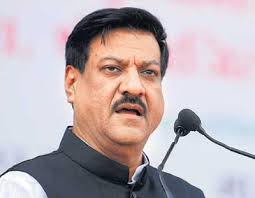New Delhi, Aug 21: The politics of heckling in the presence of Prime Minister Narendra Modi continued today with Jharkhand Chief Minister Hemant Soren becoming the third victim, while Maharashtra CM Prithiviraj Chavan refused to share the dais with Modi.
The war of words between Congress and BJP escalated over the issue as Jharkhand CM, an ally of Congress, alleged that heckling of opponents by BJP supporters at government functions in the presence of the Prime Minister amounted to "rape" of the delicate centre-state relations.
At a function in Ranchi, where Modi inaugurated a slew of development projects, Soren was hooted by the audience that included BJP activists. They chanted 'Modi, Modi' as soon as the JMM leader took the mike and his attempts to pacify the crowd by saying that he would try to be brief failed.
Soren, however, continued with his speech as Modi waved at the people for restraint. The shouts carried on all through Soren's speech.
"The PM must look into it...the federal system he talks about. I feel it is like raping the system, the tradition of the federal system. There is a plan to break it. And it is an attempt to play politics but it will not work for long," he said.
Soren said he was attending the function as a Chief Minister and not as a representative of any political party.
Maharashtra Chief Minister Prithviraj Chavan, who had to stop speaking midway after he was heckled by BJP supporters last Saturday at an event in Solapur, today skipped the 'bhumi-pujan' of a Metro project in Nagpur where Modi was also present.
Yesterday, announcing the boycott of Modi's function, Chavan had said the federal structure of the country has been undermined at the programmes in Congress-ruled states where the PM was present recently.
Haryana Chief Minister Bhupinder Singh Hooda was recently booed by a crowd at a public event in the Prime Minister's presence in Kaithal, after which he said he would never share the stage with him again.
Backing its chief ministers' stand, Congress today claimed there was an "orchestrated" and "well-planned conspiracy" behind such incidents and asserted that no one has the right to "humiliate" duly elected CMs.
AICC general secretary Ambika Soni said that Modi should immediately ask his partymen to desist from such acts and refused to accept BJP's argument that Congress needs to introspect on why the common man was unhappy with the state leadership.
Soni said there is a "pattern" as all these states, where such incidents have happened, are facing elections.
Hitting back, BJP reminded Congress Chief Ministers not to breach constitutional propriety and termed the decision of Chavan and other CMs to skip the functions of the Prime Minister as "unfortunate".
The ruling party also told Congress Chief Ministers not to fall prey to the "complex arising due to the popularity" of Modi among the masses.
BJP Vice President Mukhtar Abbas Naqvi said, "This type of negative politics will not help the Congress anyways. Congress can ignore Modi's dais but they cannot ignore his mantra of good governance and development."
He said the Congress, even after its humiliating defeat at the hustings, is not ready to see the ground reality.
"Instead of cleaning their face of the dust that has stuck to them in these polls, the Congressmen are cleaning the mirror," he said.





Comments
Add new comment